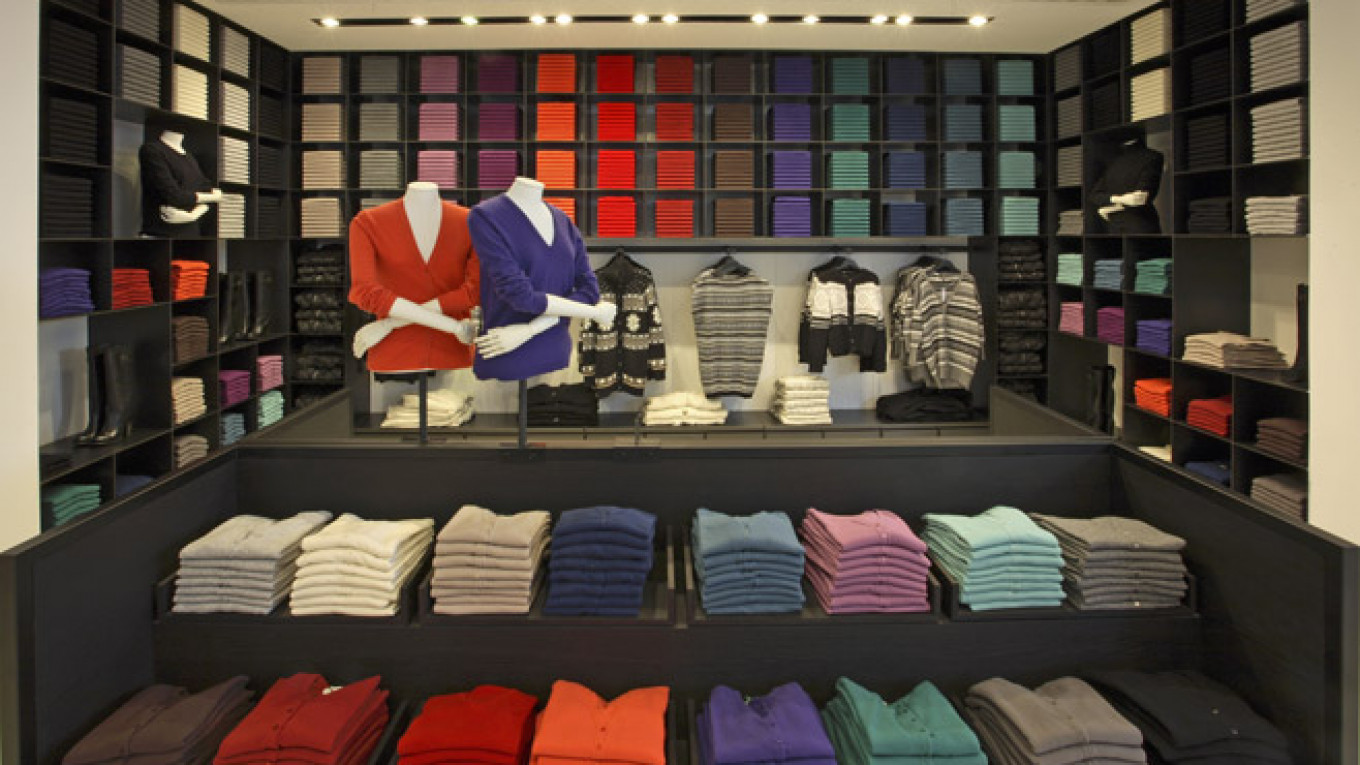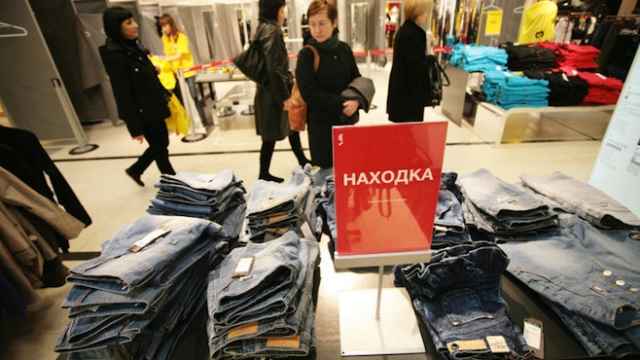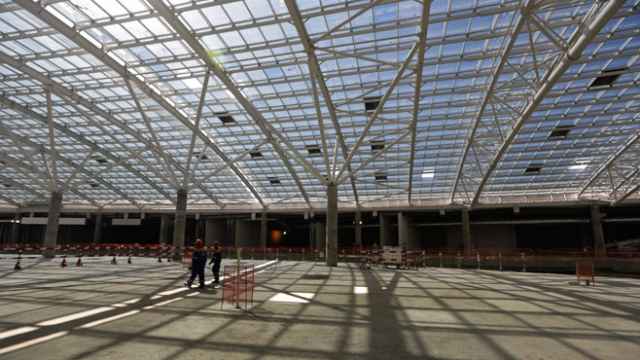Italian clothing retailer United Colors of Benetton defied a falling ruble, slowing growth and the specter of sanctions as it formally re-opened its flagship Moscow store and pledged to roll out about 40 new stores across Russia over the next three years.
Until earlier this year, Benetton, which first entered Russia in 1992, relied on local partners and franchisees. Now the retailer, famous for its bright colors and provocative advertisement campaigns, is building up a direct presence.
Benetton is "raising the stakes" in Russia, the company's chief executive Marco Airoldi told The Moscow Times in an interview at the opening last week. "If we look at the long term, there will be growth: We want to be here, we want to be associated with this market, and we want this market to be an important part of our portfolio."
With stores in St. Petersburg, the southern Russian city of Krasnodar and Moscow, the company currently has a total of eight stores under its direct control.
There are another 100 Benettons across Russia run by local partners, including one on the far-eastern island of Sakhalin.
Benetton, which has no manufacturing operations in Russia, is suffering from the recent devaluation of the Russian currency, Airoldi said. The ruble has lost over 20 percent of its value against the U.S. dollar since the start of the year.
"We buy in dollars and euros and sell in rubles," Airoldi said. "It's not fun."
The company's annual turnover in Russia is 100 million euros ($127 million) and investment is being increased, Airoldi said, declining to give more precise figures.
Benetton's flagship Tverskaya 19 store, which occupies a prime spot in downtown Moscow, has been re-designed to a new concept that the company is introducing across the world. Everyday clothes are separated from fashionable items while possible sartorial combinations flit across suspended screens. The store is dotted with carpets and even a few sofas.
"The speed at which we sell our items is twice as fast as in a traditionally laid-out store," said Benetton's creative director Valentina Soster, who was on her first trip to Russia since she visited in 1975 as a 13-year-old. She said she expected to come to the country much more often in the future.
Russia's current economic woes were temporary, said chief executive Airoldi. But he admitted that the timing of Benetton's move in Russia was linked to internal restructuring. The company is in the midst of internal changes that include the division of its clothing, manufacturing and retail businesses.
Foreign clothing retailers in Russia were put on their guard last month when a Kremlin aide suggested that Russia could ban imports of foreign clothes in retaliation at Western sanctions imposed on Moscow for its annexation of the Ukrainian region of Crimea and stoking of violence in eastern Ukraine.
Airoldi said that the company was very concerned about a possible escalation of sanctions, but that they could do nothing about it.
"It's like the weather," he said. "You are not planning a storm, but sometimes a storm happens."
Contact the author at h.amos@imedia.ru
A Message from The Moscow Times:
Dear readers,
We are facing unprecedented challenges. Russia's Prosecutor General's Office has designated The Moscow Times as an "undesirable" organization, criminalizing our work and putting our staff at risk of prosecution. This follows our earlier unjust labeling as a "foreign agent."
These actions are direct attempts to silence independent journalism in Russia. The authorities claim our work "discredits the decisions of the Russian leadership." We see things differently: we strive to provide accurate, unbiased reporting on Russia.
We, the journalists of The Moscow Times, refuse to be silenced. But to continue our work, we need your help.
Your support, no matter how small, makes a world of difference. If you can, please support us monthly starting from just $2. It's quick to set up, and every contribution makes a significant impact.
By supporting The Moscow Times, you're defending open, independent journalism in the face of repression. Thank you for standing with us.
Remind me later.







